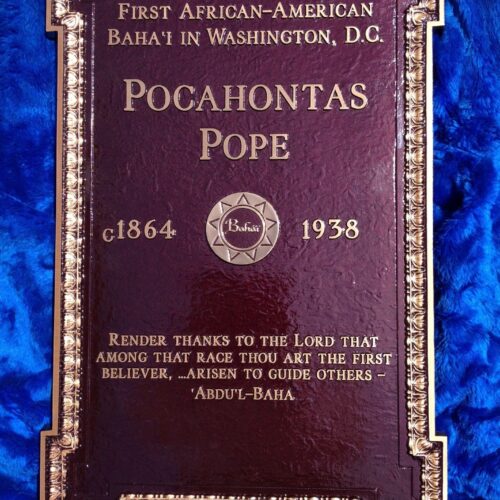Biography
Early Life
Pocahontas Pope has been recognized as the first African American woman in Washington, D.C. to join the Baha’i faith.
Around 1864, she was born in Halifax County, North Carolina. She married John Pope in December 1883 and lived in North Carolina for several years.
Religious Leadership
After moving to Washington, D.C. in 1898, they became involved in Second Baptist Church, a long-standing African American congregation. The couple became increasingly active in the church’s Lyceum, or public lecture series. John and Pocahontas served as vice president and secretary respectively of the series.
The Colored American reported in July 1900 that Pope made a notable appearance at the Second Baptist Lyceum where she “read a paper on race conditions which met with unanimous endorsement and established herself as a lady of high literary attainments.”
Activism Through Baha’i
They maintained ties with Second Baptist Church throughout their lives, although Pocahontas became increasingly active with the Baha’i community. In 1906, she was introduced to the faith community by the sister of a client who hired her to be a seamstress.
As the first African American to embrace the teachings of, Bahá’u’lláh she encouraged others to follow resulting in more than a dozen new followers by 1908. She worked with contemporaries like Harriet Gibbs Marshall to host interracial meetings, or “firesides” in her home and increase the following of the Bahai community.
One of the hallmarks of her involvement in the community was a special letter she received from Abdu’l—Baha, the leader of the faith, in the early twentieth century.
Abdu’l—Baha’s warm response increased her admiration for the faith and highlighted the significance of African American believers.
Pope was 67 years old when she died in 1938. Eighty years later in 2018, Baha’i leaders placed an ornate marker on Pope’s grave in the National Harmony Memorial Park near Washington, D.C. Pocahontas Pope is still an inspiration to the Baha’i community in the twenty-first century.

